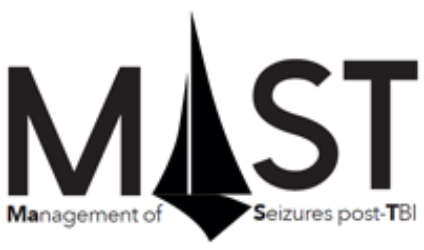Background and study aims
The majority of patients who suffer a traumatic brain injury (TBI) do not need to stay in hospital overnight. However, some require admission to a specialist hospital, as their injury is more serious. Seizures can be harmful or even fatal, if not treated appropriately. Medications that reduce the risk of seizures are called anti-epileptic drugs (AEDs). However, AEDs have side effects, which can affect patients’ quality of life, memory, concentration and general health.
Patients with seizures after TBI are typically prescribed an AED to prevent further seizures, most commonly Phenytoin or Levetiracetam. Some doctors favour a short course, whereas others favour a longer course. The first part of the trial aims to answer if one approach is better than the other (MAST-DURATION). The second part of the trial aims to answer if a 7-day course of either Phenytoin or Levetiracetam should be used for patients with a serious TBI to prevent seizures from happening (MAST- PROPHYLAXIS).
Who can participate?
MAST-DURATION:
Patients aged 10 years and over, with a traumatic brain injury, managed in a neurosurgical unit, who have started on phenytoin or levetiracetam due to an acute symptomatic seizure during acute hospitalisation.
MAST-PROPHYLAXIS:
Patients aged 10 years and over, with a traumatic brain injury, managed in a neurosurgical unit, without an acute symptomatic seizure.
What does the study involve?
MAST-DURATION:
Patients will be randomised to receive to a maximum of 3 months or a minimum of 6 months course of phenytoin or levetiracetam.
MAST-PROPHYLAXIS:
Patients will be randomised to receive either phenytoin, levetiracetam or no anti-epileptic drug for a period of 7 days.
Current international guidelines for traumatic brain injury recommend the use of phenytoin for the prevention of early post traumatic seizures, when the benefits are thought to outweigh the risks. In practice alternative anti-epileptic drugs such as levetiracetam are being used clinically as they are associated with fewer risks.
Patients will be assessed for seizures during hospital admission and will also be asked to complete follow-up questionnaires at 6,12, 18 and 24 months.
What are the possible benefits and risks of participating?
MAST-DURATION:
The study drugs patients will be provided with are standard anti-epileptic drugs, used to control seizures. We expect seizures to be reduced as a result of taking the study drug.
MAST-PROPHYLAXIS:
There is no guarantee that patients will benefit from taking part in this trial.
Apart from the potential side effects from the study drug, there are no additional risks or disadvantages involved with taking part in this study. Patients will continue to receive the standard care for their condition.
Who is funding the study?
The National Institute of Health Research
More information is available on the Trial Documents page
